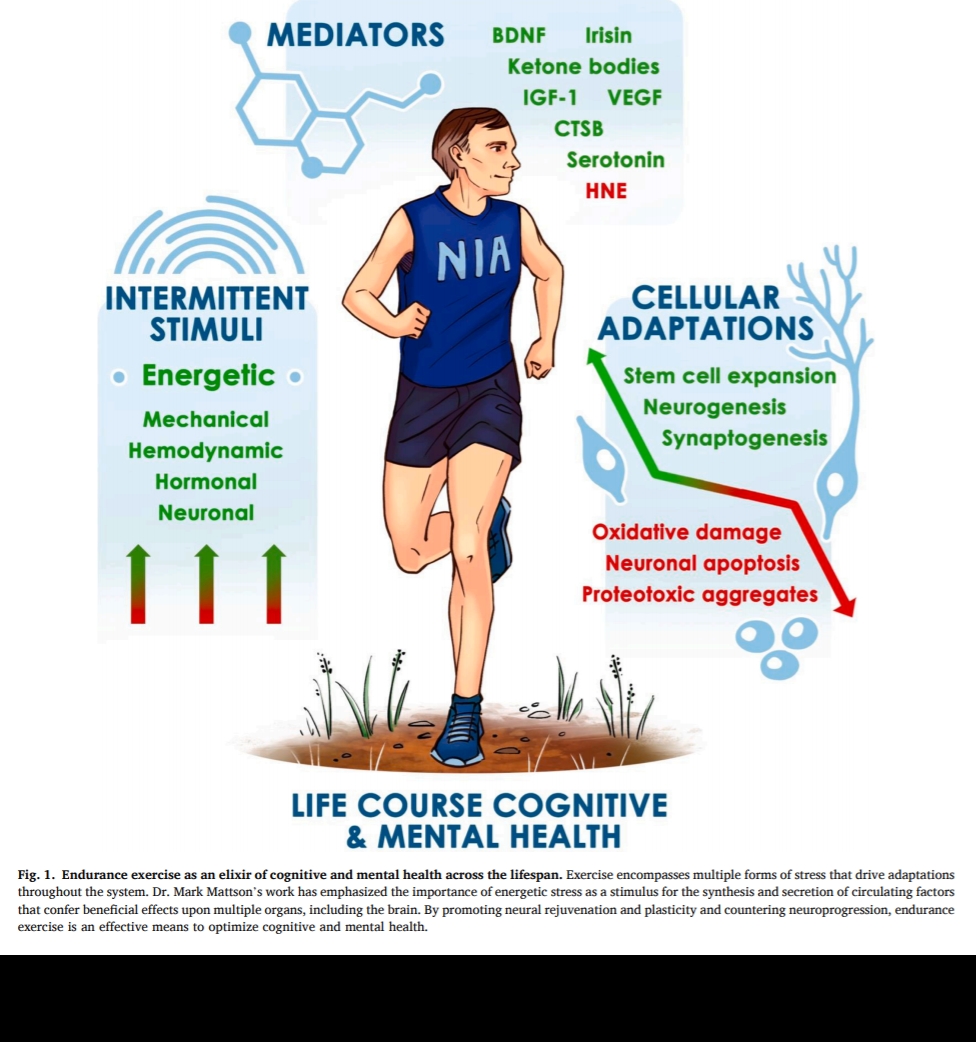Harnessing the effects of endurance exercise to optimize cognitive health: Fundamental insights from Dr. Mark P. Mattson
Sarah K.Jachim Ageing Research Reviews Volume 64, December 2020, 101147
Highlights
• Research led by Dr. Mark P. Mattson has significantly advanced the understanding of how energetic stress benefits cognitive health and aging.
• Endurance exercise causes energetic stress and stimulates neurogenesis and neuroplasticity in brain regions involved in learning and memory.
• Endurance exercise counters age-related changes in brain structure, function, and resilience through a diverse set of circulating factors.
• In the face of population aging and a growing burden of neurodegenerative conditions, promoting physical activity would benefit public health.
Dr. Mark Mattson has had a highly productive and impactful tenure as a neuroscientist at the Intramural Research Program of the National Institute on Aging. He has made notable contributions to understanding the mechanisms by which energetic stress, imparted by behaviors such as physical activity and periods of fasting, promotes rejuvenation and resilience within brain regions critical for learning and memory. In honor of Dr. Mattson’s work, this manuscript will highlight the fascinating mechanisms by which endurance exercise training conveys beneficial effects upon the structure and function of the nervous system;
that is, by mediating the synthesis and secretion of factors that directly support brain homeostasis, including brain-derived neurotrophic factor, FNDC5/irisin, ketone bodies, growth factors, cathepsin B, serotonin, and 4-hydroxynonenal. The molecular and cellular effects of these factors are discussed herein. In the face of population aging and an overwhelming surge in the prevalence of Alzheimer’s disease and related disorders, Dr. Mattson’s work as a champion and role model for physically active lifestyles is more important than ever.














